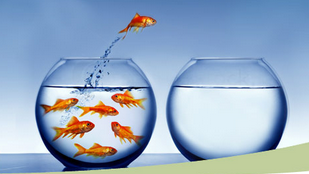The Professional ...
I began thinking about this last week. It
began shortly after two brief interactions with two separate martial artists.
The first was a phone call by someone
asking if he could ask me a few questions about being a professional martial
artist. Within a minute or two, he cut straight to the main thrust of his call
by asking ‘how can I do the work that you are doing? I want to get into
teaching police, military, special ops? Guys like that’ he said. My instinctive
reply was short and to the point ‘Yikes!’ I replied. But then I went on to
deliver a more considered answer by suggesting he first applied himself to
broadening his skill-set, because from memory, he had only trained in TKD to
that point.
The second was an instructor asking me if I
wanted him to come to my school and run some seminars. He may or may not have
had something to offer but his communication skills were ultimately what let
him down. ‘Hey mate …’ and ‘thanks Bro …’ are not the best way to start or end
a professional conversation; at least not in my play-book.
Now, I am not condemning either of these
people’s motives or their level of passion – they were both obviously ‘keen to
effect changes in their lives’ (kudos for that) – but it started me thinking
about what it really means to be a professional martial artist; or perhaps more
accurately, it got me thinking about the distinction between what I consider to
be ‘professional’ conduct and non-professional’ conduct.
The professional, ideally, should have good
communication skills. If I were trying to sell my services to a back-yard group
of cage fighters in East LA – I might well open the conversation with ‘Hey Bro
…’ – but if I was having a meeting with military personnel I would more likely
begin with ‘Hello Sir ..’. Which leads me to Rule 1: Know your client. Building
rapport with a client is very important, particularly so in the very beginning;
we cannot, if we are to be true professionals, take the same ‘low brow’
approach to communication that we took with our circle of friends in
high-school. A professional should come across as someone who is considered,
exacting, thoughtful … someone who pays attention to detail in all that they
do.
To be truly professional means that we
should, to the best of our ability, cater to the needs of our client; as
distinct from adopting a purely sales-oriented approach. The sales-only focus
would dictate that we try and convince our clients that what we have is what
they need; but a truly professional approach would be to send the client
elsewhere if we felt their needs would be better met elsewhere. Being
professional is about being the right ‘fit’ for someone, and if not, then
helping them ‘find’ the right ‘fit’ elsewhere.
In recent times, I have heard of several
instances of instructors being invited into a school to conduct a seminar (at
the behest of several well-meaning school-owners); only to use that opportunity
to poach away students to start up their own branches/clubs around the corner
(in opposition to the school that invited them in as a guest instructor. From
my perspective, this is anything but professional; zero ethics, no morality and
totally self-serving. And further, what message does this send out into the
community about the professionalism of martial artists? So ‘professionalism’ is
not only about technical proficiency; not only about ‘coaching skills’ – it is
also about integrity, congruence and ethical standards.
As far as ‘coaching skills’ are concerned, I
can say without a shadow of a doubt, that I have put more work into the
development of my set of skills than someone who has gone to university for
five or six years and got their engineering degree. Every day, I read
something, watch something or listen to someone that can help me improve my own
professional skill sets as well as my ability to teach or instruct others.
Practice alone, is never a guarantee of success; we should remember that
practice is really just hardwiring things (thoughts, actions, responses, etc) –
we should be always engaged in mindful practice – constantly asking ‘is there a
better way to do this? Can I improve on this or that? Why is this not working?
Why does that seem to get a better result?”
As professionals we can always look to
those who have walked the road ahead of us; trying to identify the pitfalls
they encountered, trying to emulate the things they did exceptionally well. The
true professional is always about improvement; the true professional should
never be completely satisfied; they should push, explore, ask questions, seek
answers, try to implement new ideas and build new paradigms.
Being a professional (and this is not
correct in the strictest sense) is not necessarily about making a living – it
is, in my view, about taking a studied, thoughtful and highly considered
approach to whatever it is that you want to do. If people are paying you for
your services; I feel it is incumbent upon us to provide the very best service
that we can – and never, ever, be satisfied with merely going through the
motions.
JBW



Comments